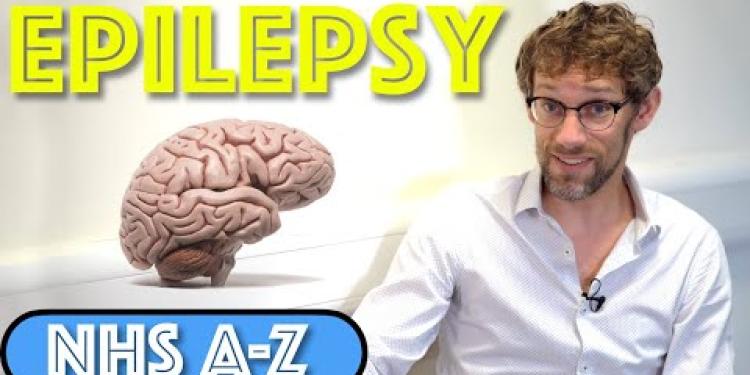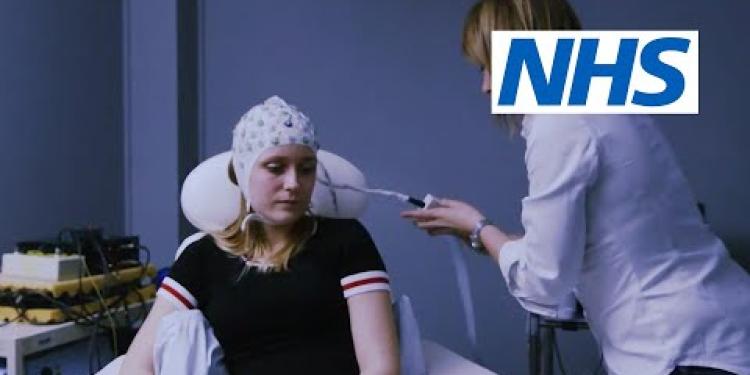Important Information On Using This Service
- Ergsy carefully checks the information in the videos we provide here.
- Videos shown by YouTube after a video has completed have NOT been reviewed by ERGSY.
- To view, click the arrow in the center of the video.
Using Subtitles and Closed Captions
- Most of the videos you find here will have subtitles and/or closed captions available.
- You may need to turn these on and choose your preferred language.
Turn Captions On or Off
- Go to the video you'd like to watch.
- If closed captions (CC) are available, settings will be visible on the bottom right of the video player.
- To turn on captions, click settings.
- To turn off captions, click settings again.
Find A Professional
More Items From Ergsy search
-

Epilepsy - My Story | NHS
Relevance: 100%
-
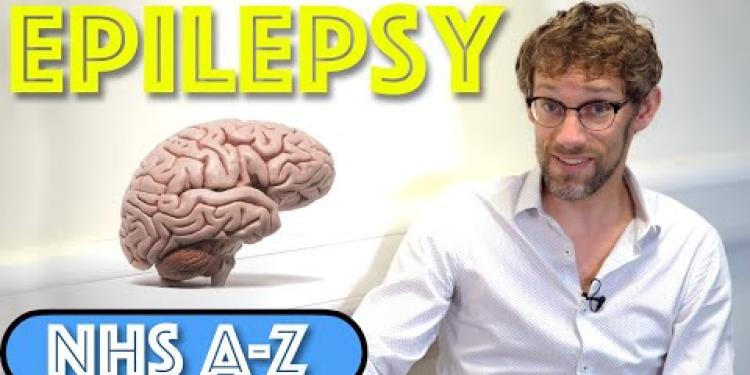
Epilepsy - What is Epilepsy and What Causes Seizures - NHS A to Z - Dr Gill
Relevance: 99%
-
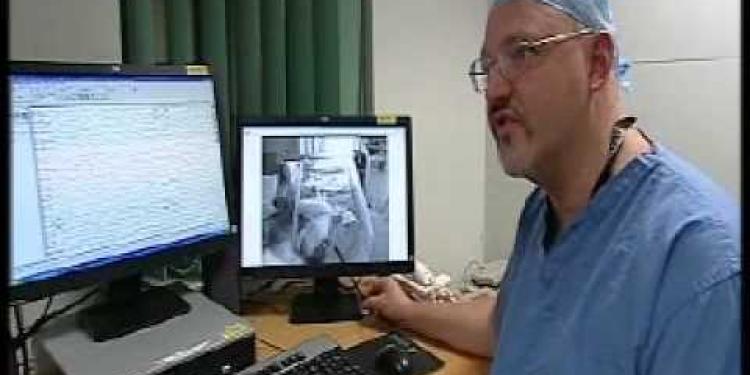
Neurosurgery for Epilepsy
Relevance: 80%
-
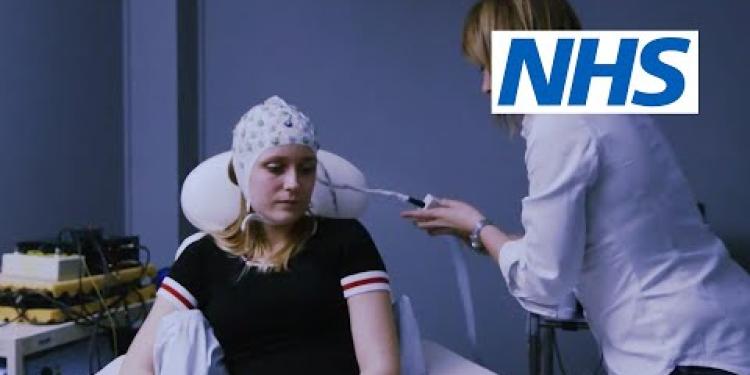
Epilepsy research: EEG | NHS
Relevance: 67%
-
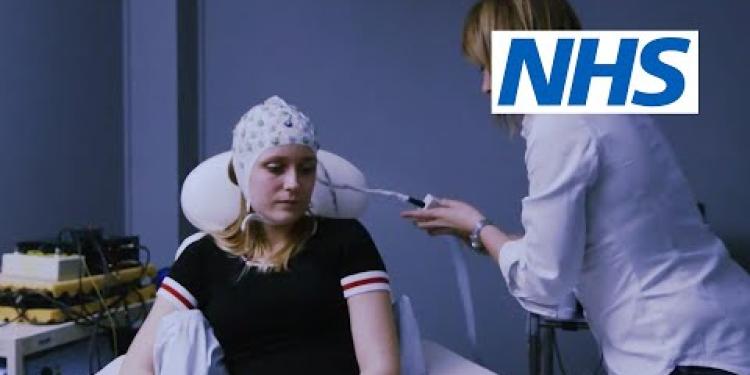
Epilepsy research: EEG | NHS
Relevance: 61%
-

Am I affected by Sodium Valproate?
Relevance: 19%
-
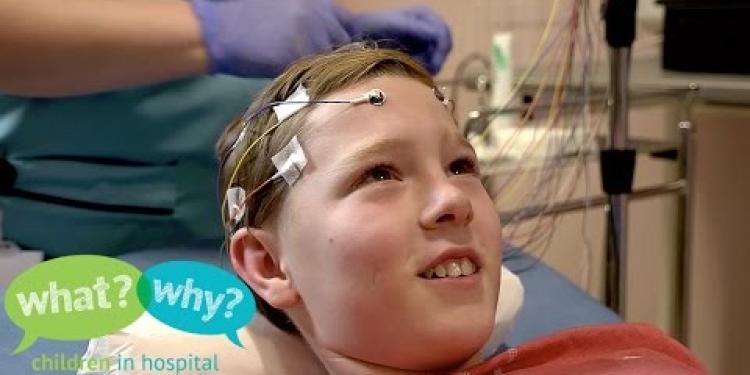
What happens when my child has an EEG?
Relevance: 5%
-
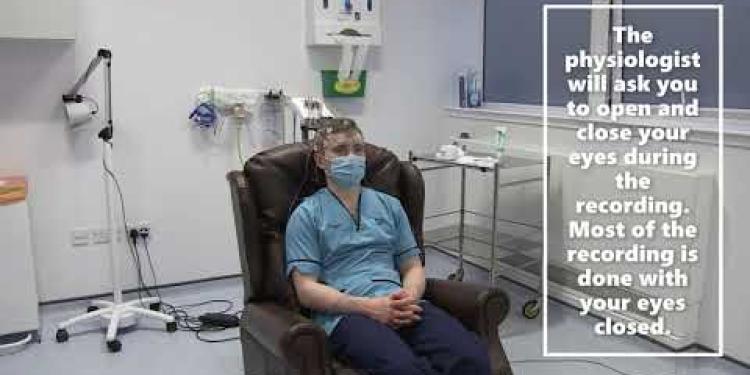
Neurophysiology EEG Patient Information
Relevance: 5%
-

Profound intellectual and multiple disabilities | NHS
Relevance: 5%
-

Inpatient Surgery at North Bristol NHS Trust
Relevance: 3%
-
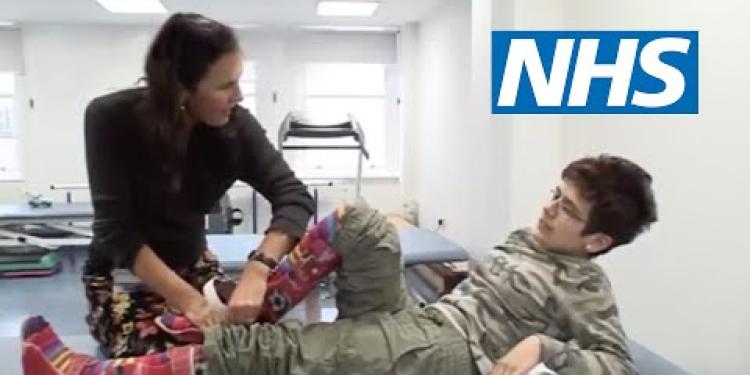
Cerebral palsy | NHS
Relevance: 3%
-
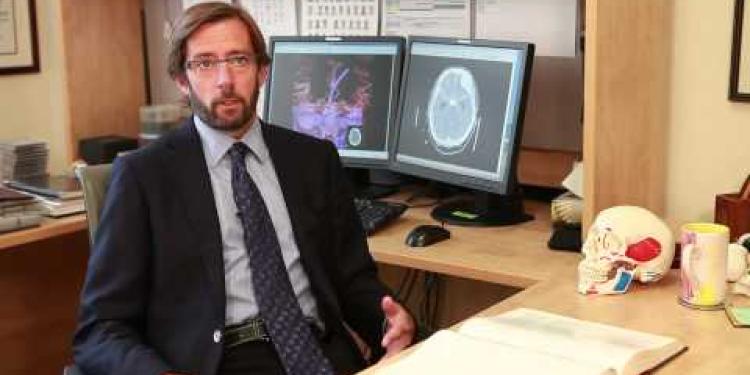
What is a Subarachnoid Hemorrhage?
Relevance: 2%
-

Dupuytrens
Relevance: 1%
Neurosurgery for Epilepsy: Understanding the Options and Outcomes
Introduction to Epilepsy
Epilepsy is a neurological disorder characterized by recurring seizures. These seizures result from abnormal electrical activity in the brain and can vary widely in severity. In the United Kingdom, approximately 600,000 people are affected by epilepsy. While medication remains the primary treatment, about 30% of patients do not achieve adequate seizure control through drug therapy alone. For these individuals, neurosurgery can be a viable option.Types of Neurosurgical Procedures
Several neurosurgical approaches are available for treating epilepsy: 1. **Resective Surgery**: This involves removing the portion of the brain where seizures originate. The most common type is temporal lobectomy, which has a high success rate in reducing or eliminating seizures. 2. **Lesionectomy**: When seizures are caused by specific abnormalities in the brain, such as a tumour or malformation, surgeons can remove these lesions to control the seizures. 3. **Corpus Callosotomy**: This procedure entails severing the nerve fibres that connect the brain's two hemispheres to prevent the spread of seizures from one side of the brain to the other. 4. **Multiple Subpial Transection (MST)**: Used when the seizure focus is near vital brain areas that control movement or language, MST involves making cuts in the brain's grey matter to interrupt seizure pathways without removing tissue.Pre-surgical Evaluation
Before surgery, patients undergo an extensive pre-surgical evaluation to pinpoint the seizure focus and ensure they are good candidates for surgery. This evaluation often includes: - **Prolonged Video-EEG Monitoring**: To record seizures and identify their origin. - **MRI and PET Scans**: To detect structural abnormalities in the brain. - **Neuropsychological Testing**: To assess cognitive function and predict potential impacts of surgery.Benefits and Risks
Neurosurgery for epilepsy can offer significant benefits, including reduced seizure frequency, improved quality of life, and enhanced cognitive and social functioning. However, it also carries risks such as infection, bleeding, and neurological deficits.Post-surgery Recovery and Outcome
Recovery from neurosurgery can vary. Most patients require a hospital stay of several days followed by a period of rehabilitation. Success rates are encouraging – up to 70% of patients undergoing resective surgery become seizure-free, while another 20% experience a notable reduction in seizure frequency.Conclusion
For individuals in the UK with drug-resistant epilepsy, neurosurgery offers a promising path toward better seizure control and improved quality of life. It is essential to work closely with a specialised epilepsy care team to ensure a thorough evaluation and to weigh the potential benefits against the risks.Neurosurgery for Epilepsy: Understanding the Options and Outcomes
Introduction to Epilepsy
Epilepsy is when people have seizures again and again. Seizures happen because of unusual electrical activity in the brain. They can be mild or very strong. In the UK, around 600,000 people have epilepsy. Medicines are often used to help, but about 30% of people still have seizures after taking them. For these people, brain surgery might help.Types of Neurosurgical Procedures
There are different types of brain surgeries for epilepsy: 1. **Resective Surgery**: This is when doctors take out the part of the brain where seizures start. The common type is called temporal lobectomy. It often helps stop or reduce seizures. 2. **Lesionectomy**: If seizures are caused by a tumor or abnormal part of the brain, doctors can remove it to stop seizures. 3. **Corpus Callosotomy**: In this surgery, doctors cut the nerves connecting the two halves of the brain. This stops seizures from spreading across the brain. 4. **Multiple Subpial Transection (MST)**: This is used when seizures start near important brain areas for movement or talking. Doctors make small cuts in the brain to stop seizures without removing any parts.Pre-surgical Evaluation
Before surgery, doctors do special tests to see if surgery can help and where seizures come from. These tests include: - **Prolonged Video-EEG Monitoring**: This records seizures to find out where they start. - **MRI and PET Scans**: These look for any unusual parts in the brain. - **Neuropsychological Testing**: This checks how the brain works and sees what might change after surgery.Benefits and Risks
Brain surgery for epilepsy can lower the number of seizures, improve life quality, and help people think and act better. But surgery can also have risks like infection, bleeding, or other brain problems.Post-surgery Recovery and Outcome
After surgery, people usually stay in the hospital for a few days and then need some recovery time. About 70% of people who have resective surgery have no more seizures, while another 20% have fewer seizures.Conclusion
For people in the UK with epilepsy that does not respond to medicine, brain surgery can be a good way to control seizures and live better. It’s important to work with doctors who know about epilepsy to decide if surgery is the right choice.Frequently Asked Questions
What is epilepsy surgery?
Epilepsy surgery is a neurosurgical procedure aimed at removing or altering the area of the brain where seizures originate to reduce or eliminate seizures.
Who is a candidate for epilepsy surgery?
Candidates for epilepsy surgery are typically patients who have not responded to medication after trying multiple antiepileptic drugs and continue to experience debilitating seizures.
What types of epilepsy surgery are available?
Common types of epilepsy surgery include resective surgery, laser interstitial thermal therapy (LITT), disconnection procedures like corpus callosotomy, and neurostimulation techniques such as vagus nerve stimulation (VNS) and responsive neurostimulation (RNS).
How is the surgical area identified?
The surgical area is identified using advanced imaging techniques such as MRI, PET scans, and EEG monitoring, often combined with inpatient video EEG monitoring and neuropsychological testing.
What are the risks of epilepsy surgery?
Risks include infection, bleeding, neurological deficits, memory loss, and changes in cognition or behavior. Discussing specific risks with a neurosurgeon is crucial.
What is the success rate of epilepsy surgery?
Success rates vary depending on the type of surgery and the patient’s condition. Resective surgery can result in seizure freedom for approximately 60-80% of patients, while other procedures may reduce seizure frequency.
How long is the recovery time after epilepsy surgery?
Recovery time varies but generally involves a hospital stay of a few days to a week, followed by several weeks to months of gradual recovery and rehabilitation.
Will I need to stay on medication after epilepsy surgery?
Many patients continue to take antiepileptic drugs for months or even years after surgery. The goal is to eventually reduce or stop medications, but this is determined on an individual basis.
Are there any lifestyle changes necessary after epilepsy surgery?
Lifestyle changes may include modifications to activities during recovery, ongoing medication management, and regular follow-ups with healthcare providers to monitor seizure activity and overall health.
How do I prepare for epilepsy surgery?
Preparation involves a thorough evaluation by a multidisciplinary team, which may include imaging studies, neuropsychological testing, and sometimes an inpatient stay for video EEG monitoring.
Is epilepsy surgery covered by the NHS?
Yes, epilepsy surgery is generally covered by the NHS for eligible patients. However, eligibility needs to be established through comprehensive assessments performed by specialist teams.
What kind of follow-up care will I need after surgery?
Follow-up care involves regular appointments with your neurosurgeon and neurologist, medication adjustments, and possibly additional therapies such as occupational or speech therapy, depending on your recovery.
Can children undergo epilepsy surgery?
Yes, children can undergo epilepsy surgery, especially if their seizures are significantly affecting their quality of life and are not controlled by medication. Assessments and procedures are tailored specifically for the paediatric population.
What are the psychological effects of epilepsy surgery?
Psychological effects can vary: some patients experience improvements in mood and quality of life, while others may face challenges such as anxiety or depression. Psychological support and counselling are important aspects of the recovery process.
Can epilepsy return after surgery?
While epilepsy surgery can significantly reduce or eliminate seizures, there is a possibility that seizures may return. Continuous monitoring and follow-up care are essential for managing any potential recurrence.
What is epilepsy surgery?
Epilepsy surgery is an operation on the brain to help stop seizures. Seizures are sudden bursts of electricity in the brain. When medicine does not help, a doctor might do this surgery.
This surgery is done by a special doctor called a neurosurgeon. The neurosurgeon removes or changes a small part of the brain where the seizures start.
If you or someone you know is thinking about epilepsy surgery, talking to a doctor can help. A doctor can explain what happens during surgery. Pictures and videos can also help you understand.
Epilepsy surgery is an operation on the brain. It helps to stop or reduce seizures. Seizures are sudden bursts of electricity in the brain that can make you feel strange or lose control of your body.
Who can have surgery for epilepsy?
People who might need epilepsy surgery are those whose seizures do not stop, even after trying different medicines. These seizures make it hard to live a normal life.
What kinds of epilepsy surgery can you have?
Epilepsy is when you have seizures. Sometimes, doctors can do surgery to help. Here are the types of surgery you might get: 1. **Removing a part of the brain**: Doctors take out the part of the brain where seizures start. 2. **Changing how the brain works**: Doctors can do things to help the brain signals move in a better way. 3. **Putting in a small device**: Doctors put a device in your body that helps stop seizures. **Supportive tools and techniques**: - **Talking to a doctor**: Always ask your doctor questions if you're confused. - **Using pictures**: Looking at pictures or videos can help you understand. - **Bringing a friend or family member**: They can help you remember what the doctor says. These surgeries might help with seizures. Always talk with your doctor to find the best choice for you.There are different types of epilepsy surgery that doctors can do to help people. Some common types are:
- **Resective Surgery:** This means taking out the part of the brain where seizures start.
- **Laser Surgery (LITT):** Doctors use a laser to make the part of the brain that causes seizures smaller.
- **Disconnection Procedures:** One type is called corpus callosotomy, where doctors cut the part that helps different sides of the brain talk to each other.
- **Neurostimulation:** This uses devices to help control seizures. Two types are:
- **Vagus Nerve Stimulation (VNS):** Doctors put a small device in the body that sends signals to the brain to help stop seizures.
- **Responsive Neurostimulation (RNS):** This device notices when a seizure is starting and sends signals to stop it.
If you need help reading, try using tools that read text out loud or ask someone to help you understand.
How do doctors find the right place to do surgery?
Doctors use special pictures and tests to find the right spot for surgery. They use machines like MRI, PET scans, and EEG. Sometimes, patients stay in the hospital for video EEG tests and brain checks.
What can happen if you have epilepsy surgery?
There are some risks to think about. These risks are getting an infection, bleeding, having problems with the brain and nerves, losing memory, and changes in how you think or act. It is very important to talk to a brain doctor about these risks.
How often does epilepsy surgery work?
Epilepsy surgery helps some people feel better. Success means you have fewer or no seizures after the surgery.
Not everyone gets the same results. Doctors say around 50% to 70% of people have fewer seizures after surgery.
Talk with your doctor to know more. They can tell you if surgery might help you.
It might help to use pictures or videos to understand better.
How well a surgery works can change. It depends on the kind of surgery and how the patient is doing.
One surgery, called resective surgery, helps about 60 to 80 out of every 100 people stop having seizures.
Other surgeries might not stop seizures but can help make them happen less often.
If you find reading hard, you can use tools like text-to-speech to listen to the text. You can also ask someone to help explain the words.
How long does it take to feel better after epilepsy surgery?
Getting better takes time. You might stay in the hospital for a few days or up to a week. After you leave the hospital, it will take a few weeks or months to feel better. You will need to do special exercises to help you get strong again.
Will I need to keep taking my medicine after epilepsy surgery?
After having an operation for epilepsy, you might still need to take your medicine. Your doctor will help you. They will tell you what is best.
If you have questions, you can ask your doctor. You can also ask a nurse or someone who helps with health things.
You can use pictures and stories to understand better. It might help to write down what the doctor says.
Many people keep taking medicine for epilepsy for months or even years after surgery. The plan is to help them take less medicine or stop it, but each person is different.
Do I need to change how I live after epilepsy surgery?
If you had epilepsy surgery, you might need to change a few things in your life. Here are some ideas that can help:
- Listen to your doctor. They will tell you what is safe for you.
- Take your medicine. It helps you stay healthy.
- Get enough rest. Sleep is important.
- Eat good food. It helps your body heal.
- Use tools like alarms or reminders to take your medicine on time.
- Ask a friend or family member to help you remember appointments.
Always ask your doctor if you have questions.
You might need to change some things you do while getting better. This could mean taking medicine every day and seeing your doctor often. They will check how you are doing and if you have any seizures. They will also help you stay healthy.
Using tools like calendars or reminders can help you remember when to take your medicine or go to doctor appointments.
Getting Ready for Epilepsy Surgery
Do you need epilepsy surgery? Here are some simple steps to help you get ready:
1. Talk to Your Doctor: Ask your doctor all the questions you have. It is important to understand what will happen.
2. Write Things Down: Keep a notebook. Write down details about your seizures and any questions you have.
3. Bring a Friend or Family Member: Have someone with you for support when you visit the doctor.
4. Use Reminders: Use a calendar or phone reminders to keep track of appointments.
5. Practice Relaxation: Try deep breathing or listening to music. It can help you feel calm.
These steps can help you feel more ready for the surgery.
Getting ready means doctors will check you carefully. A team of different doctors will help. They might take special pictures of your brain, ask you to do some thinking tests, and sometimes you might need to stay in the hospital for a little while. While you are there, they will watch your brain carefully with special videos and machines.
For help understanding this, you can use pictures to show the steps or work with a teacher who explains things in a way that's easy to understand.
Does the NHS pay for epilepsy surgery?
If you need an operation for epilepsy, you might not have to pay. The NHS can help with the cost. Ask your doctor for more information.
Here are some helpful things you can do:
- Talk to your doctor and ask questions.
- Use a notebook to write down what your doctor says.
- Take someone with you to help remember the information.
Yes, the NHS can pay for epilepsy surgery for people who need it. But, doctors need to make sure a person needs the surgery. Special doctors will do check-ups to decide.
What care will I need after my operation?
After your operation, you will need some care to help you get better.
Here is how you can feel better:
- Make regular visits to your doctor.
- Take your medicine as your doctor tells you.
- Eat healthy food and drink lots of water.
- Get plenty of rest and sleep.
- Ask for help if you are worried or in pain.
Your doctor and nurses can help you. It is okay to ask them questions.
After your treatment, you will need to see your brain doctors often. They will check how you are doing. You might need to change your medicine or have more help, like learning to talk or do everyday things again.
Can kids have epilepsy surgery?
Some kids with epilepsy can have a special surgery to help with their seizures. A doctor will decide if the surgery is a good choice.
Tools and techniques that can help:
- Talking to your doctor for more information.
- Reading a simple book or watching a video about epilepsy.
- Using pictures to understand what happens during surgery.
- Talking with someone who had the surgery to learn about their experience.
Yes, children can have surgery if they have epilepsy. This might be needed if the seizures are making their lives hard, and medicine does not help. Doctors make sure the tests and surgery are just right for kids.
What happens in your mind after epilepsy surgery?
After surgery to help epilepsy, you might feel different. Here’s what you could experience:
- You might feel happier or sadder.
- Sometimes, you could feel worried or confused.
- You might notice changes in how you remember things.
It is important to talk to a doctor about these feelings. Drawing pictures or writing in a diary can help you express yourself. You can also use apps or games that make you feel calm and happy.
Feeling different in your mind can happen. Some people feel happier and enjoy life more. But others might feel worried or sad. Getting help from people you can talk to, like a therapist, is very important when you are getting better.
Can epilepsy come back after an operation?
Sometimes, epilepsy can come back after surgery.
Here are some things that can help:
- Talk to your doctor regularly.
- Take your medicine on time.
- Keep a diary of any seizures.
- Ask for help if you have worries.
Epilepsy surgery can help stop or lessen seizures. But sometimes, seizures can come back. It is important to keep seeing your doctor and having check-ups to help manage this.
Useful Links
Useful links from: Am I affected by Sodium Valproate?
- NHS - Sodium Valproate The NHS page provides comprehensive information on sodium valproate, including its uses, risks, and guidelines to ensure safety, particularly for women who are pregnant or planning to become pregnant.
- Epilepsy Society - Sodium Valproate and Pregnancy Epilepsy Society's guide on managing epilepsy with sodium valproate, focusing on the risks associated with its use during pregnancy and advice for affected individuals.
- Medicines and Healthcare products Regulatory Agency (MHRA) - Sodium Valproate Alerts MHRA provides guidance and safety alerts regarding sodium valproate, emphasizing strict pregnancy prevention program requirements and updates for healthcare professionals and patients.
- Fetal Anti-Convulsant Syndrome Association (FACSA) UK FACSA UK offers support and information for families affected by fetal anti-convulsant syndrome, including issues related to sodium valproate and similar medications during pregnancy.
Useful links from: Epilepsy - What is Epilepsy and What Causes Seizures - NHS A to Z - Dr Gill
- NHS - Epilepsy Comprehensive guide from the NHS on epilepsy, its causes, symptoms, diagnosis, and treatment options.
- Epilepsy Action UK-based charity offering information and support for people affected by epilepsy, including resources about managing the condition.
- Epilepsy Society Leading charity providing information, support, and research towards the treatment and understanding of epilepsy in the UK.
- Young Epilepsy UK charity focused on children and young people with epilepsy, offering support, resources, and advocacy.
Useful links from: Epilepsy - My Story | NHS
- NHS - Epilepsy: My Story Read personal stories from people who have experienced epilepsy, their challenges, and how they manage their condition.
- Epilepsy Action - Your Stories A collection of personal epilepsy stories contributed by people from the UK. These stories aim to offer support and inspiration to others affected by the condition.
- Epilepsy Society - Personal Experiences Browse through real-life stories shared by individuals living with epilepsy, detailing their personal journeys and coping strategies.
- Young Epilepsy - My Story Find stories from young people and their families about living with epilepsy. This charity offers a platform for young people to share their experiences and connect with others.
Useful links from: Epilepsy research: EEG | NHS
- NHS - Epilepsy This is the main NHS page dedicated to providing comprehensive information on epilepsy, including its causes, symptoms, diagnosis, and treatment options.
- Epilepsy Research UK Epilepsy Research UK is a charity dedicated to funding and promoting research into the causes, treatment, and prevention of epilepsy.
- Epilepsy Action Epilepsy Action provides a broad range of resources, support networks, and information for epilepsy patients, their families, and healthcare professionals.
- NHS - EEG (Electroencephalogram) This NHS page offers detailed information on EEG, a test used to find problems related to electrical activity of the brain, which is crucial for epilepsy diagnosis and management.
Have you found an error, or do you have a link or some information you would like to share? Please let us know using the form below.
- Ergsy carfully checks the information in the videos we provide here.
- Videos shown by Youtube after a video has completed, have NOT been reviewed by ERGSY.
- To view, click the arrow in centre of video.
- Most of the videos you find here will have subtitles and/or closed captions available.
- You may need to turn these on, and choose your preferred language.
- Go to the video you'd like to watch.
- If closed captions (CC) are available, settings will be visible on the bottom right of the video player.
- To turn on Captions, click settings .
- To turn off Captions, click settings again.
